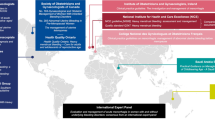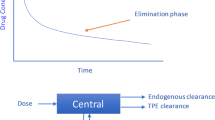Abstract
PURPOSE: Perioperative homologous blood transfusion has been suggested to have an adverse effect on survival in patients undergoing resection of colorectal cancers. Preoperative therapy is being increasingly used for rectal cancer patients and has an adverse effect on erythropoietic capacity. The objectives of this study were to evaluate the feasibility and safety of administration of recombinant human erythropoietin to patients receiving preoperative therapy for rectal cancer and to assess the impact of such treatment on blood transfusion requirements. METHODS: The study was an open-label, Phase I and II, nonrandomized, two-center trial. All patients received 50.4 Gy of irradiation with 5-fluorouracil infusions. Ten patients diagnosed with rectal cancer received 250 U/kg of recombinant human erythropoietin subcutaneously three times per week during preoperative radiation and chemotherapy. Oral iron was given to patients receiving erythropoietin. Ten contemporaneously treated patients who received both radiation and chemotherapy were used as controls. RESULTS: Of the 20 patients 13 were males; mean age was 64 years. Surgical procedures that patients underwent were abdominoperineal resection (14 patients), low anterior resection (4 patients), coloanal anastomosis (1 patient), or none (1 patient). There were no significant differences between groups in age, gender, stage or hemoglobin levels before therapy. No adverse reactions to erythropoietin were encountered. Hemoglobin levels were significantly higher in the treatment group during Weeks 1,3, and 5 (P<0.02 for each). Transfusion requirements were significantly decreased in patients who received erythropoietin (0.4vs. 3.7 units;P<0.0003). CONCLUSIONS: The data showed that use of erythropoietin during preoperative therapy can prevent the decline in hemoglobin that commonly occurs during therapy. Further, this was not associated with adverse events and significantly decreased the need for perioperative blood transfusions. This suggests that the use of erythropoietin in support of a preoperative chemoradiotherapy regimen for patients with rectal cancer is safe and should be considered. Whether such transfusion avoidance will translate into a survival benefit in this setting will require a large, prospective, clinical trial.
Similar content being viewed by others
References
Williams MD, Levine EA. Blood transfusion and infectious complications after colorectal cancer surgery. Curr Surg 1998;55:3–5.
Francis DM. Relationship between blood transfusion and tumor behavior. Br J Surg 1991;78:1420–8.
Waymack JP. Sequelae of blood transfusions. Infect Surg 1990;41–7.
Heiss MM, Memple W, Delanoff C,et al. Blood transfusion—modulated tumor recurrence: First results of a randomized study of autologous versus allogenic blood transfusion in colorectal cancer surgery. J Clin Oncol 1994;12:1859–67.
Busch O, Hop W, Hoynck van Papendrecht M, Marquet R, Jeekel J. Blood transfusions and prognosis in colorectal cancer. N Engl J Med 1993;328:1372–6.
Lapierre V, Auperin A, Tiberghien A. Transfusion-induced immunomodulation following cancer surgery: fact or fiction? J Natl Cancer Inst 1998;90:573–80.
Levine EA, Vijayakumar S. Blood transfusion in patients receiving radical radiotherapy: a reappraisal. Onkologie 1993;16:79–87.
Miller CB, Jones RJ, Piantadosi S, Abeloff MD, Spivak JL. Decreased erythropoietin response in patients with the anemia of cancer. N Engl J Med 1990;322:1689–92.
Glaspy J, Bukowski R, Steinburg Taylor C, Tchekmedyian S, Vadhan-Raj S. Impact of therapy with epoetin alfa on clinical outcomes in patients with nonmyeloid malignancies during cancer chemotherapy in community oncology practice. J Clin Oncol 1997;15:1218–34.
Ludwig H, Fritz E, Kotzmann, Hocker P, Gisslinger H, Barnas U. Erythropoietin treatment of anemia associated with multiple myeloma. N Engl J Med 1990;322:1693–9.
Miller CB, Platanias LC, Mills SR,et al. Phase I–II trial of erythropoietin in the treatment of cisplatin-associated anemia. J Natl Cancer Inst 1992;84:98–103.
Platanias LC, Miller CB, Mick R,et al. Treatment of chemotherapy-induced anemia with recombinant human erythropoietin in cancer patients. J Clin Oncol 1991;9:2021–6.
Vamvakas EC. Perioperative blood transfusion and cancer recurrence: meta-analysis for explanation. Transfusion 1995;35:760–8.
Busch OR, Hop WC, Hoynck van Papendrecht MA, Marquet RL, Jeekel J. Blood transfusions and prognosis in colorectal cancer. N Engl J Med 1993;328:1372–6.
Oster W, Herman F, Gamm H,et al. Erythropoietin for the treatment of anemia of malignancy associated with neoplastic bone marrow infiltration. J Clin Oncol 1990;8:956–62.
Hirst DG. Anemia: a problem or an opportunity in radiotherapy? Int J Radiat Oncol Biol Phys 1986;12:2009–16.
Author information
Authors and Affiliations
Additional information
Supported in part by a grant from Ortho-Biotech.
About this article
Cite this article
Levine, E.A., Laborde, C., Hambrick, E. et al. Influence of erythropoietin on transfusion requirements in patients receiving preoperative chemoradiotherapy for rectal cancer. Dis Colon Rectum 42, 1065–1069 (1999). https://doi.org/10.1007/BF02236704
Issue Date:
DOI: https://doi.org/10.1007/BF02236704




